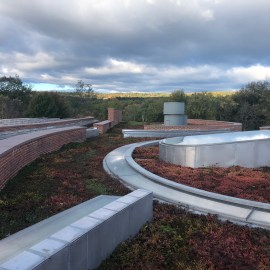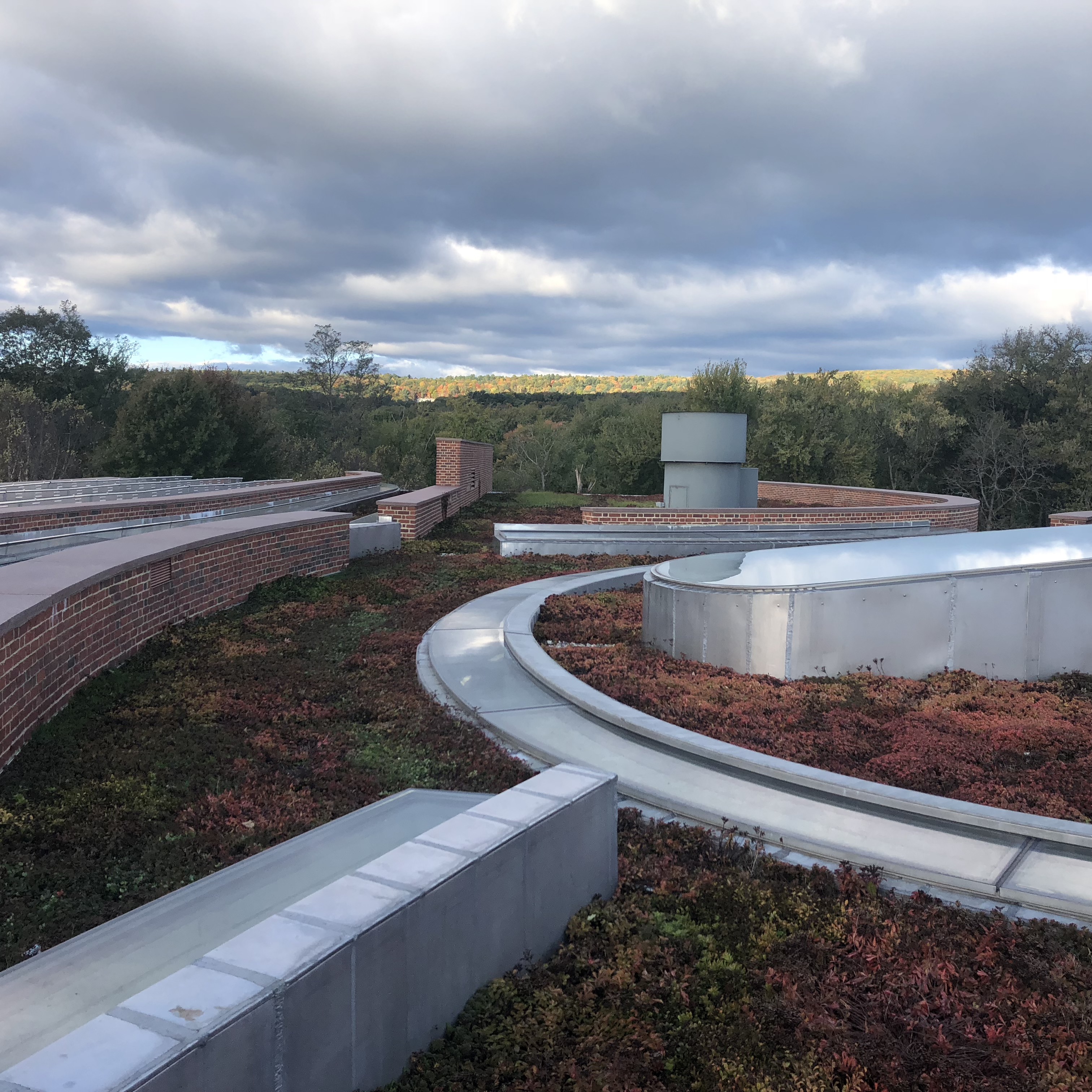Ever since the adoption of “Environmental Stewardship” into the school mission in 2008, Deerfield has taken up many environmentally-focused projects and initiatives, such as Think 80/20 and Back to Tap Water, that have made immense progress in improving the school and community.

Sustainability at the academy is not just limited to projects to preserve energy and natural resources, but also the involvement and promotion of the educational component where students are taught “leadership in a rapidly changing world that requires global understanding, environmental stewardship, and dedication to service.”
Ivory Hills, the former Director of Sustainability and current Academic Dean, spoke about the considerations and challenges the team has to keep in mind while planning and implementing initiatives: “One [challenge] is to figure out how we answer the question of are we primarily
interested in being a sustainable organization, or are we primarily interested in educating students about sustainability.”
An example and a current practice well known to students is the weekly Sunday dorm clean ups.
“It doesn’t always happen perfectly well when students do it,” Dr. Hills said, “and we do get contaminated recycling waste streams.”
Although an alternative is to hire an outside company to streamline and perfect the task, Dr. Hills recognizes that in doing so students would lose the education and practice in the process.
“Students should learn how to do dorm clean up, and students should learn how to recycle,” he explains.
Mr. Purington, the current Environmental Management Coordinator, explained another challenge he often faces in the planning and the implementation process.
“I can sit in my office and design a plan that can work,” he explained, “but the challenge is finding an effective way to explain it to the students and faculty so that they are understood and implemented in the way it’s been designed.”
In his experience working on the 80/20 program, there has been many changes and adaptations on an ongoing basis to not only improve and develop the plan but also make it better for the people and the facility team participating in it.
“When we first rolled out 80/20, composting wasn’t part of it. And then composting became a little piece of it, and since then composting has expanded to become a major part of the program,” he said.
Mr. Purington recognized that the Deerfield community is generally very accepting of the idea of recycling, though the sheer amount of people affected by the smallest decisions made by the team leads to questions like where to put the waste materials, what vehicles to use transport them, where to take them and how much does that process costs.
Mr. Purington is currently working on a detailed study of how solar may be extended to more places on campus.
In mid-January 2018, the brand new Physical Plant Trades Shop implemented a new system with 222 solar panels, almost five times as big as the system on New Dorm.
During 2018, it produced 83,843 kWh/year,” according to Mr. Purington.
To provide some context, the average use of electricity in each of 40-plus single and two family houses on campus is about 610 kWh per month.
Thus, the electricity produced by the solar system at the Trades Shop is equivalent to the usage at 11 to 12 typical households.
From solar panels to recycling during Sunday clean-ups, there are numerous areas in which the academy promotes sustainability.
Student and faculty involvements and participations has drastically increased over the years along with the integration of Sustainability with Global Studies and Community Services. The Dining Services team have also been leading efforts from promoting healthier diets such as the Live Clean, Eat Dirty campaign to local purchasings of organic products to promote sustainability.
“There’s so, so many personal decisions people can make, one decision at a time,” Mr. Purington relates, “and each of those decisions has a small impact, and each person’s impact can add up to things.”

